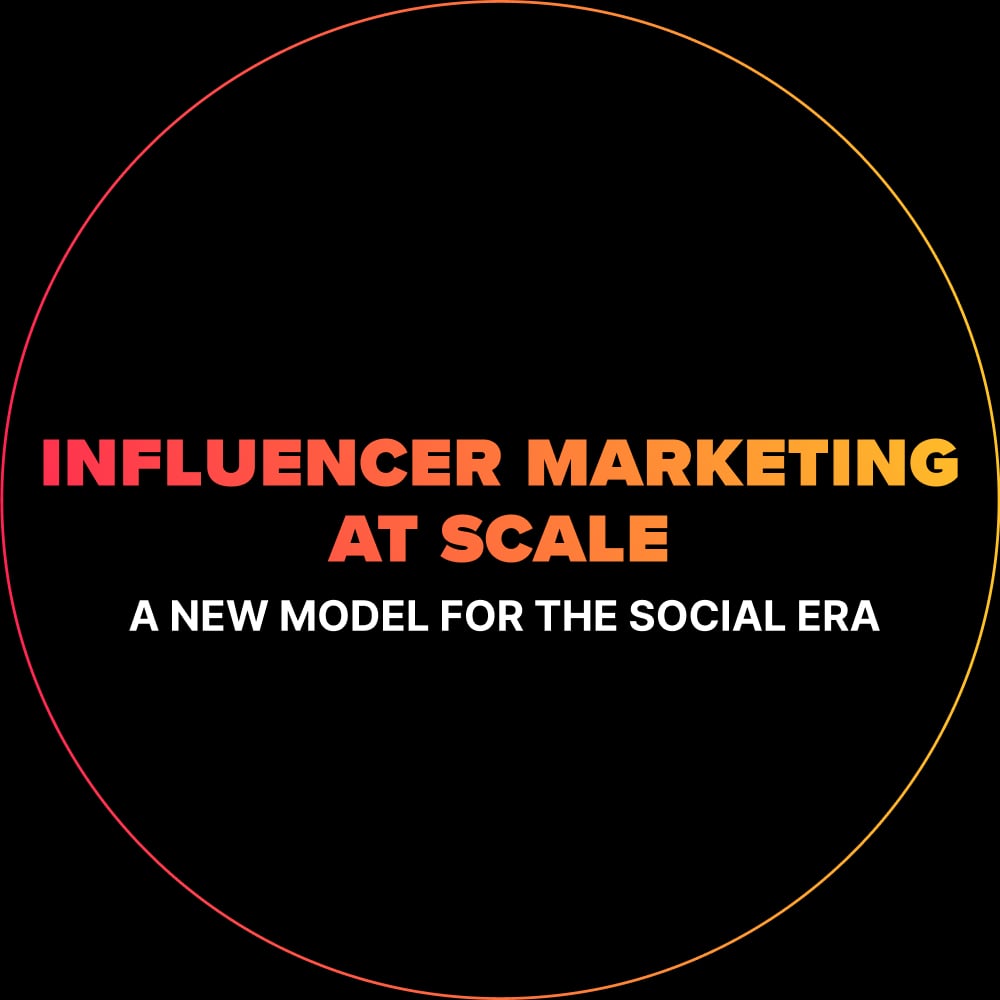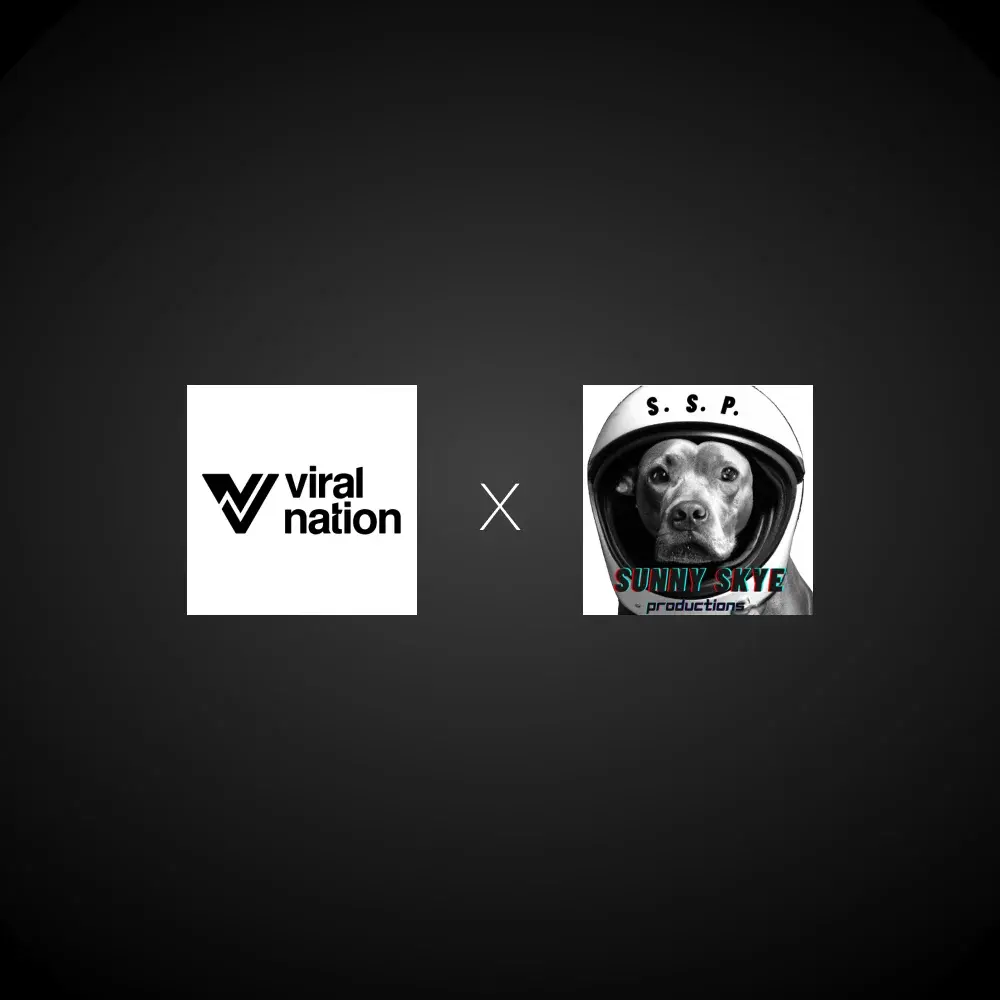









The latest from Viral Nation
Marketing
There’s traditional social marketing. Then there’s Viral Nation
Moving towards a social-first approach doesn’t have to be hard. Viral Nation provides a perfect pairing of brands and talent to deliver social media campaigns that convert. Our always-on services encompass community management to social-experiential ensuring your brand stays top of mind.
1 B+
Engaged Customers
35
Awards
7 x
Avg ROAS increase
- 42 %
Avg CAC reduction

Influencer Marketing
Influencer Marketing
Maximize creator impact and ROI with our access to a pool of verified creators with an affinity for your target audience. Unlock seamless communication, turnkey coordination, and effective campaign execution, all powered by our in-house team.

Social Content Studio
Social Content Studio
Make sure you’re always at the center of culture with high-volume, lo-fi content designed to captivate audiences on the platforms they’re already on.

Social Experiential Marketing
Social Experiential Marketing
Bridge the gap between online and offline brand salience with dynamic experiential strategies that leverage a social halo to extend impact and maximize value beyond the physical event.

Community Management
Community Management
Humanize your social presence and build brand loyalty with an audience-centric strategy that elevates the customer journey while driving social commerce.

Paid Performance Marketing
Paid Performance Marketing
Amplify every campaign with always-on paid performance marketing that leverages the power of social to drive real business results.

Business Intelligence
Business Intelligence
Go beyond vanity metrics with holistic measurement to get a deeper understanding of campaign performance and attribution, supported by industry-leading experts and technology.



MGM Resort's Formula 1 Las Vegas Takeover
read more


Mikayla becomes e.l.f. CEO for a day.
read more


Bringing SmartWater's new visual identity to life.
read more
.svg)
.svg)
Opening Walmart Land to the Roblox metaverse
read more


Putting Energizer into Hearts, Minds, and Stockings
read more.jpg)


Normalizing Cold Tub Recovery for the Everyday GOAT
read more-

New York Fashion Week, N4XT

"Fashion’s reach extends beyond the runway, with social media driving how it’s experienced globally,” said Imad Izemrane, CEO & Co-Founder of N4XT Experiences. “Viral Nation allows us to amplify these events on a global stage, creating real-time impact that extends far beyond the runway. Their Strategy, Content Creation, and expertise in Social data ensures that New York and Los Angeles Fashion Week aren’t just moments in time, but cultural movements that shape the conversation for years to come.”
New York Fashion Week, N4XT
-

7 Eleven Canada

“For highly targeted and seasonally optimized campaigns, Viral Nation consistently delivers versatile content creation across various formats. With their ability to handle large-scale operations, 7-Eleven turned to Viral Nation to enhance our social presence across targeted markets and demographics. Their comprehensive and integrated service model reduces the need for multiple service providers, adding value at every step. Connecting our audience’s wants and needs to our social strategy has significantly boosted brand visibility and positive audience sentiment.”
7 Eleven Canada
-

Chegg

“Viral Nation has propelled Chegg into the social-first era, helping to transform our channel into a vibrant hub that resonates with our audience. With a deep understanding of our mission and goals, Viral Nation captures the essence of today’s college life, curating influencers and user-generated content that leverages trends and cultural moments. With their expertise and alliance with our marketing team, they have helped Chegg become a significant voice in the #EduTok space delivering impactful, relatable, viral, and memorable content that authentically supports students on their academic journeys.”
Chegg
-
.webp)
Dairy Management Inc.
.webp)
“Viral Nation transformed Undeniably Dairy’s approach to influencer content, identifying a diverse group of enthusiastic dairy-loving influencers for an ongoing partnership. The approach was all about identifying a wide breadth of authentic voices of all tiers and formalizing a partnership to bring their own, personal stories to life on an ongoing basis. Viral Nation coordinated with the influencers as they crafted innovative, seasonally relevant content and engaging activations, which Viral Nation supported with paid media amplification.”
Dairy Management Inc.
-

Modern States

“It matters to us that our ambassadors represent our values as an organization. Viral Nation Secure™ lets us quickly review prospective ambassadors’ social presence, with their permission, and make better decisions about who represents us.”
Modern States
The #1 Talent Representation For Today’s Digital Stars
Viral Nation is the largest influencer talent agency connecting today’s most exciting stars and brands.
%20(4).png)
.jpg)

%20(1200%20x%201200%20px)%20(1200%20x%20628%20px)%20(600%20x%20314%20px)%20(600%20x%20314%20px)%20(300%20x%20300%20px)%20(2000%20x%202000%20px)%20(1).png)

Viral Nation is the largest influencer talent agency connecting today’s most exciting stars and brands.
-

Brand Deals & Partnerships

Brand Deals & Partnerships
Claim 33% more in value when your Viral Nation agent negotiates on your behalf.
-

Creator Studio

Creator Studio
Elevate your digital footprint with our expert team offering bespoke services across content strategy, channel management & distribution, and production & content management.
-

Original Premium Content

Original Premium Content
Work with our programming team on original content pitches for networks and streaming platforms.
-

Talent Ventures

Talent Ventures
We offer support in turning your influence into a long-term business, creating ventures that align with your goals while uncovering new spaces to build authentic products that convert fans into customers and create lasting value.
Solutions
Powering your brand reputation management
Embedded in everything we do, our proprietary creator intelligence technology is designed to scale your marketing efforts and creator vetting at the speed of social. From greater brand fit to unparalleled brand safety, we make the power of AI work for you.

CreatorOS is an AI-powered, proprietary technology that harnesses an unparalleled level of creator intelligence for greater creator sourcing at scale, measurement, and attribution.

Secure harnesses the power of AI to proactively navigate brand reputation blind spots and mitigate risk: solving brand safety and fit at speed and scale.
Our impact
Let’s Create Something Special
Viral Nation was launched in 2012 by two best friends and continues its grassroots spirit till this very day. Join a diverse community of creatives, strategists, and leaders in this once-in-a-generation opportunity to disrupt the entire traditional media and marketing industry.


Scale your business with Viral Nation
Shake up your business and captivate your audience like never before.


%20(3).png)

.png)


.jpg)





